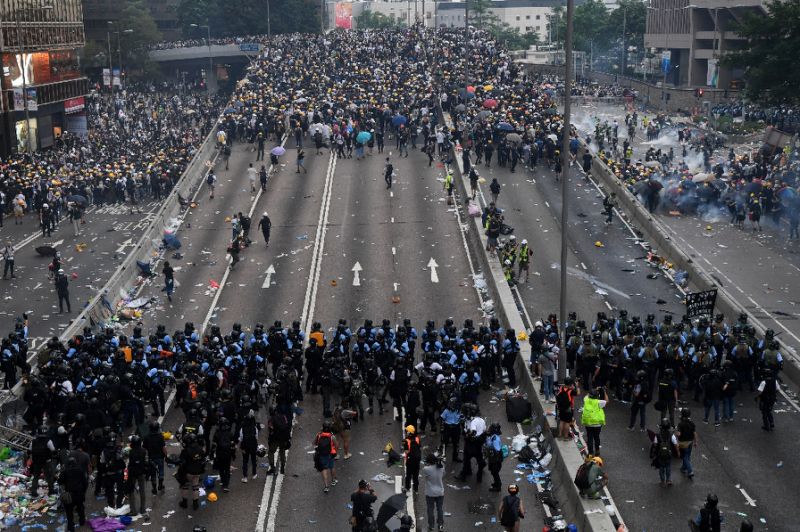Still unexplained
The hunt for the origins of Covid-19 has for the past four years been a tangled web of politics, power struggles, and international finger-pointing.
Hong Kong’s summer of rage was sparked by broad opposition to a plan to allow extraditions to the mainland but has since morphed into a wider call for democratic rights in the semi-autonomous city.

Hong Kong protests (Photo: AFP)
China on Thursday issued its most pointed threat yet to pro-democracy protesters in Hong Kong, warning that it has “enough solutions and enough power to swiftly quell unrest” should it deem the situation “uncontrollable”.
Three senior commanders said that they were unaware of any plans by China to bolster their own ranks with mainland troops or police officers, even if the political chaos worsens.
And they admitted that any move to do so would place the city’s police force in uncharted waters.
Advertisement
One of the senior commanders said, “I can’t envisage it. At the operational level, we have considerable depth. I think we have the determination, the cohesiveness and the depth of resources to keep going.”
The three officers agreed to sit down with a group of foreign journalists on condition of anonymity so they could speak more freely during the worst unrest the force has faced since leftist riots in the late 1960s.
Hong Kong’s summer of rage was sparked by broad opposition to a plan to allow extraditions to the mainland but has since morphed into a wider call for democratic rights in the semi-autonomous city.
Last month, Thousands of pro-democracy protesters defied a police ban and began marching through Hong Kong a day after riot-police fired rubber bullets and tear gas in the latest violent confrontation to plunge the financial hub deeper into crisis.
Huge crowds gathered in the heart of the city’s commercial district after police gave permission for a static protest in a park but banned a proposed march through the city.
The demonstrations over the last seven weeks were triggered by a controversial bill which would have allowed extraditions to mainland China, but have evolved into a call for wider democratic reforms and a halt to sliding freedoms.
The extradition bill was proposed on April 3 this year.
Advertisement